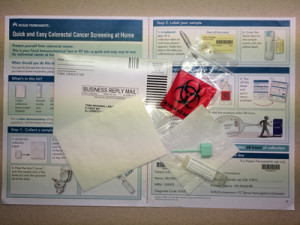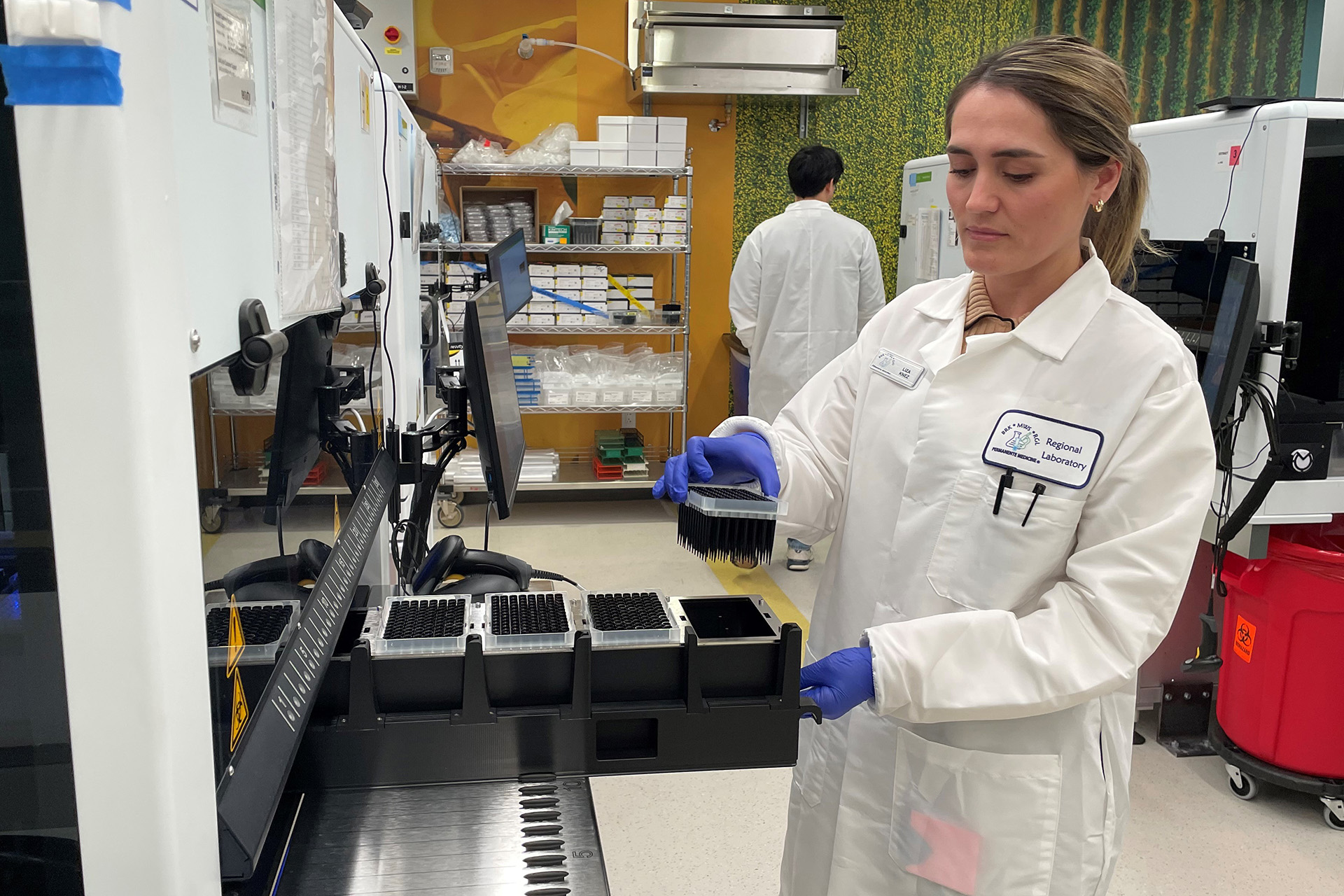A new study by Douglas Corley, MD, PhD, (pictured) and colleagues shows that stool tests are highly sensitive to finding colorectal cancers, and many eligible KP members are taking the test every year as recommended.
Colorectal cancer is the second-leading cause of cancer death in the United States, yet only two in three adults in the United States is adequately screened.
In California, Kaiser Permanente members between the ages 50 and 75 are screened for colorectal cancer at rates much higher than the national average of 65 percent — more than 80 percent of members are receiving one of three screening tests. The U.S. Preventive Services Task Force recommends that people at average risk be screened with either: (1) an annual stool test, called the fecal immunochemical test or FIT; (2) colonoscopy, which examines the entire colon, every 10 years; or (3) sigmoidoscopy, which examines the lower colon, every five years.
Now a new study of Kaiser Permanente members in California, published recently in the journal Annals of Internal Medicine, shows that the FIT test is highly sensitive for detecting colorectal cancers, and that eligible Kaiser Permanente members are willing to take the test every year as recommended.
Douglas A. Corley, MD, PhD, gastroenterologist at the Kaiser Permanente San Francisco Medical Center and a research scientist at the Kaiser Permanente Division of Research, explains what the study found and why colorectal cancer screening is so important.

How does Kaiser Permanente screen for colorectal cancer?
We offer members options regarding colorectal cancer screening, including the two most commonly used recommended tests: colonoscopy and FIT. Since 2006, we have also annually mailed FIT kits to any member who is not up to date with screening. FIT is a simple test that detects blood in the stool. Blood is an early sign that there may be polyps in the colon, which can develop into cancer. Patients whose FIT results are positive are referred for a colonoscopy.
What did this new study find?
We looked at the results of 670,000 FIT kits that were mailed to eligible members of Kaiser Permanente’s Northern and Southern California regions between 2007 and 2013. More than half of them completed a stool test in the first year.
FIT detected 80.4 percent of patients who were ultimately diagnosed with colorectal cancer in the first year, and 73.4 to 78 percent in the subsequent three years of screening. Furthermore, more than 75 percent of people who started screening with FIT repeated the screening test as recommended. Of those whose FIT tests were positive, almost 80 percent completed the recommended follow up colonoscopy within a year and virtually all had a colonoscopy or other follow-up within one year.
What are the benefits of FIT?
Unlike older stool tests, FIT does not require any dietary or medication restrictions beforehand and can be completed entirely by mail. Furthermore, FIT is done every year, so we can detect cancers that start growing in-between tests with longer screening intervals, such as colonoscopy. This study confirms that members who complete the test every year have excellent long-term outcomes.
I’ve heard that colonoscopy is the best screening test for colorectal cancer. Is that true?
We don’t have evidence that one screening strategy for colorectal cancer is better than another; each has its advantages and disadvantages. The best evidence currently suggests that colonoscopy every 10 years and FIT once a year are similar in terms of the numbers of colorectal cancer deaths prevented. The most important thing is that people get screened by one of the recommended methods. FIT can be done at home, and it doesn’t require bowel preparation or a visit to the doctor’s office. Colonoscopy is also an excellent test, but not everyone is willing to have an invasive test just for screening.





This Post Has 8 Comments
I submitted a FIT not knowing they are date sensitive. How long are the FIT kits viable for correct analysis? I understand an older kit may provide false results.
Hello. Please email your Kaiser Permanente physician to learn if your results are available or if you need to take your test again. Thank you.
Is the FIT test used by KP testing only for human hemoglobin or is it the test that detects blood in stool as well as DNA biomarkers that have been found in colorectal cancer and precancerous advanced adenomas?
Thanks for your question. The FIT test used by KP only tests for human hemoglobin. Here is some additional information from Dr. Corley.
Kaiser Permanente uses the annual fecal immunochemical test for colorectal cancer screening; this strategy is one of the most tested and proven methods for decreasing deaths from colorectal cancer. Some more recently developed tests, such as stool tests that add DNA biomarkers, have recently been introduced, but more research is needed regarding how they perform, and how frequently they should be performed compared to the current standards to have similar benefits.
I understand that as a preventative test FIT and colonoscopy are similar. What I’m not seeing addressed is the standard of practice in other regions of the U.S. where the colonoscopy is performed with removal of polyps. If the polyps are removed they can’t turn cancerous, right? Seems that the FIT test, though much easier to do and less invasive, is still waiting to find out if you have cancer.
FIT and colonoscopy are equally recommended by national organizations such as the United States Preventative Services Task Force for decreasing the risk of dying from colorectal cancer. Although no completed studies have yet directly compared these two strategies, both have the ability to find precancerous polyps and early cancers. Colonoscopy can find more small precancerous polyps, but also has somewhat greater risks and is less convenient. Thus, many health care groups with high levels of success at screening their members, such as Kaiser Permanente, offer both types of tests, as offering only one type seems to result in a lower likelihood of getting screened.
Douglas A. Corley, MD, PhD
Gastroenterologist, San Francisco Medical Center
Research Scientist III, Kaiser Permanente Division of Research
What is your opinion re annual FIT testing on patients 75 and older with history of adenomatous polyps (3, 2 polyps at first and second) found at two seperate colonoscopies over a 15 year period? Last colonoscopy at age 79.
From Douglas A. Corley, MD:
“Thank you for the inquiry. The standard recommendation for follow-up of adenomatous polyps is using colonoscopy (not FIT). There is not a national consensus regarding at what age to stop performing follow-up examinations for a history of polyps; it is dependent upon the overall health and life expectancy of each patient. We would recommend you discuss this with your doctor.”